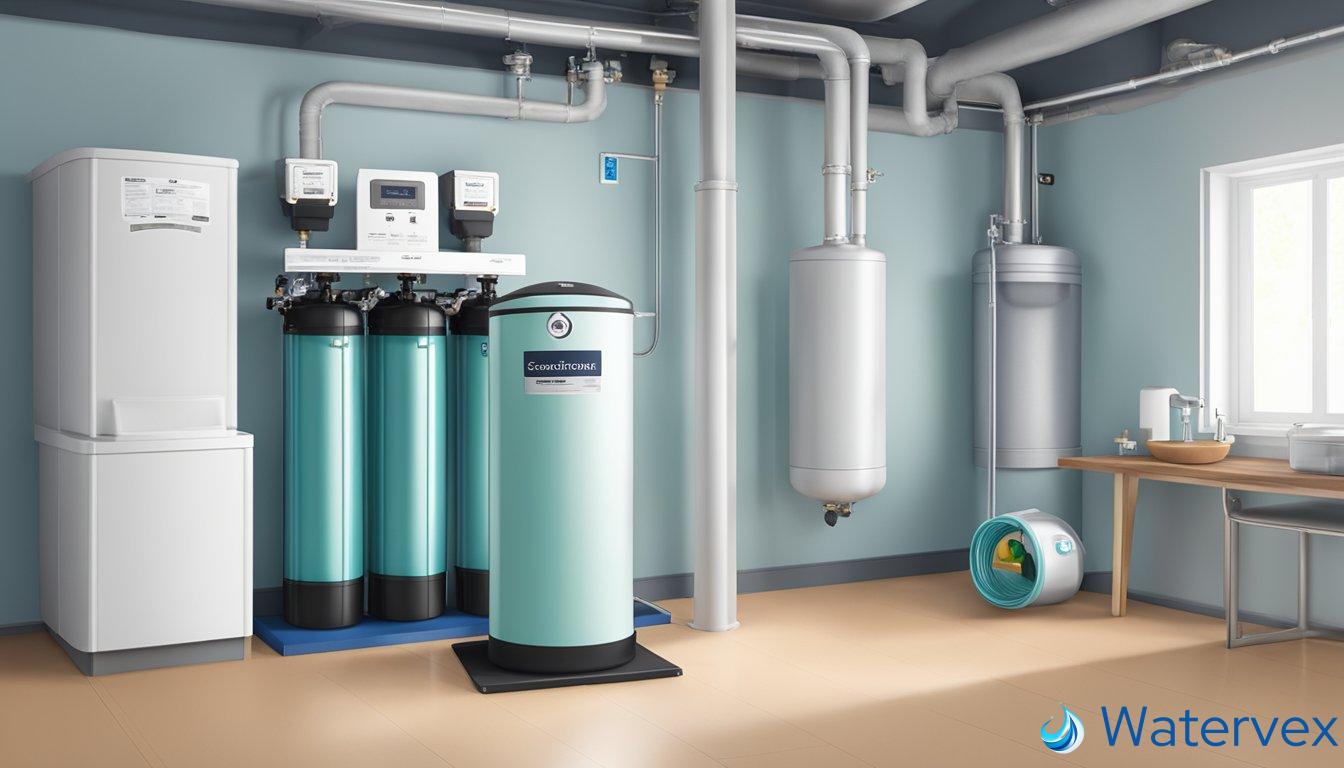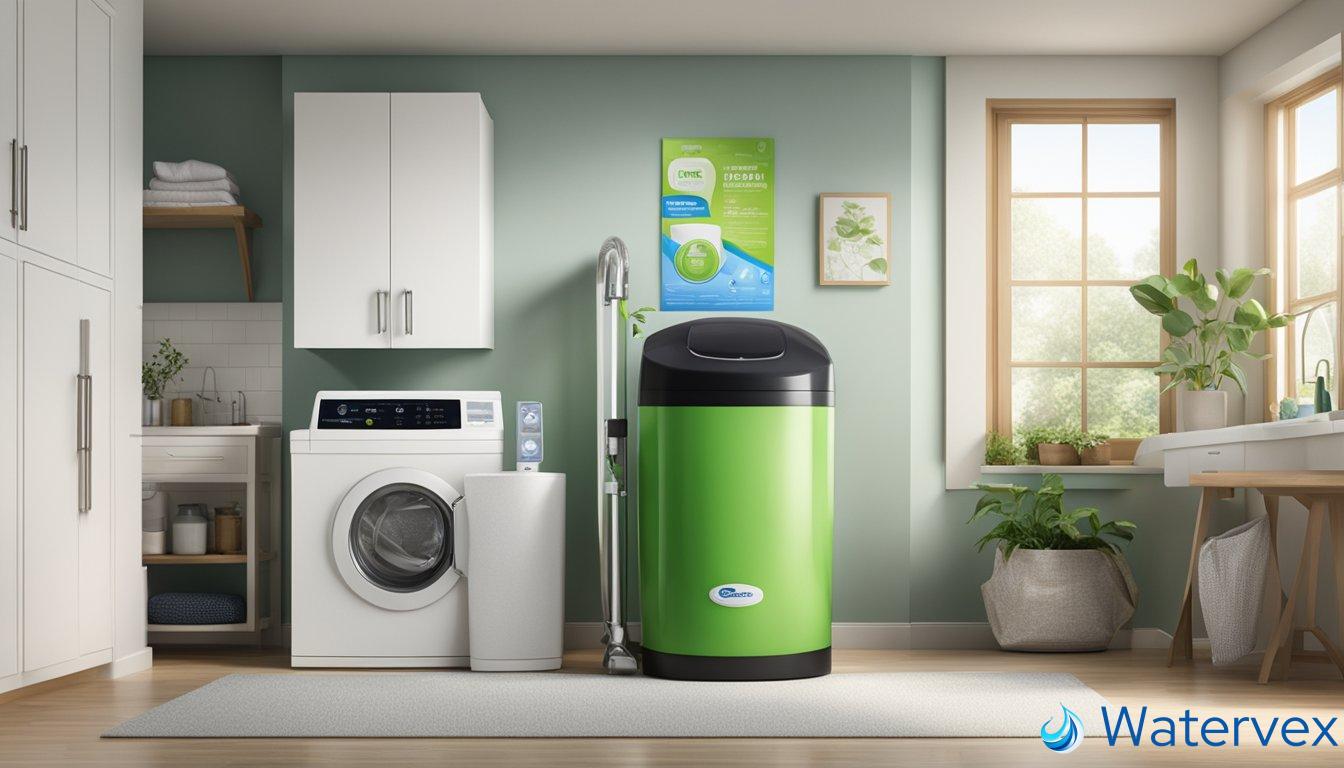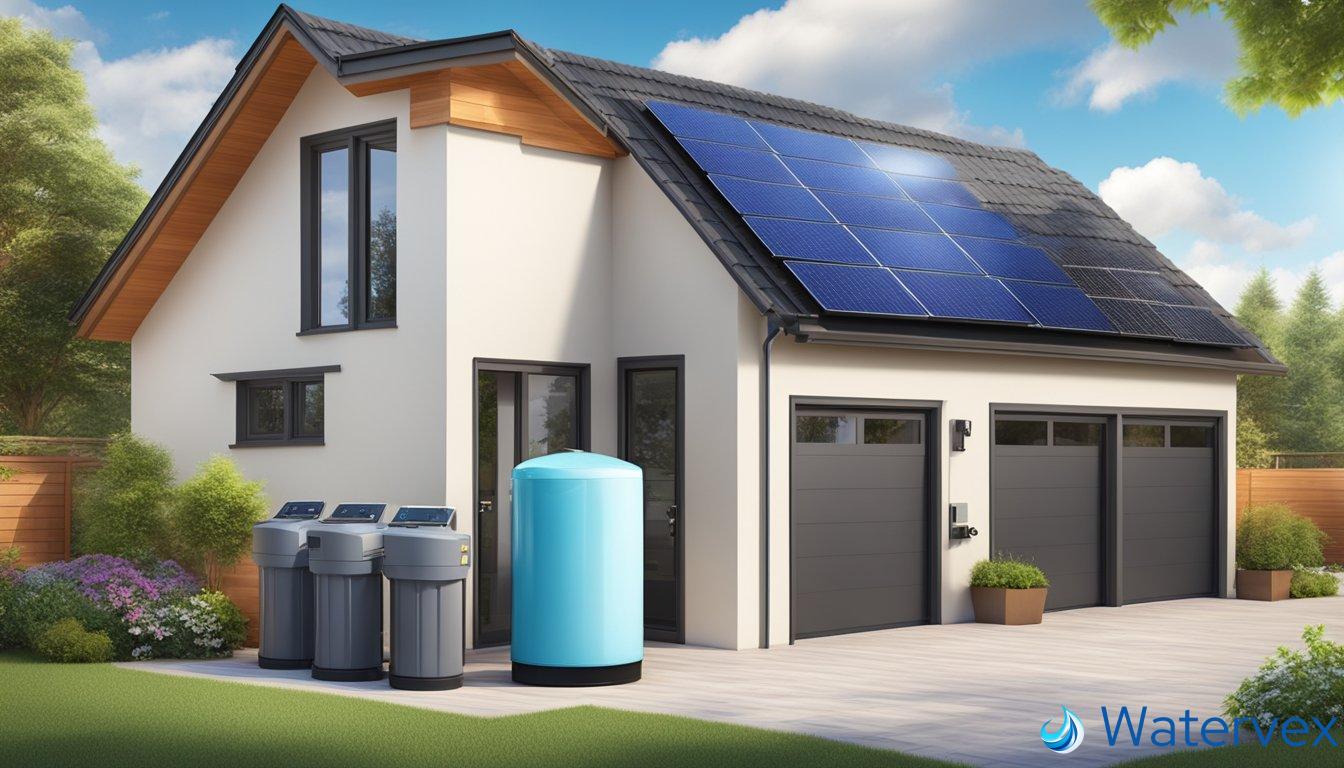When exploring ways to improve your home’s efficiency, it’s important to know what upgrades qualify for energy tax credits. Water softeners are systems installed in homes to treat hard water, which contains elevated levels of calcium and magnesium. While these systems are beneficial for preventing scale buildup and extending the life of appliances, determining whether they qualify for energy credits is not as straightforward as with other clean energy investments like solar panels or wind turbines.

Home improvements that enhance energy efficiency can lead to significant savings, both through a reduction in utility bills and potential tax benefits. However, it’s essential to examine the criteria for what the IRS considers a qualifying upgrade. As legislation evolves, new opportunities for savings emerge, yet a water softener system typically focuses more on water quality than direct energy conservation.
Key Takeaways
- Not all home improvements qualify for energy tax credits.
- Water softeners may not directly qualify for these credits.
- It’s vital to review up-to-date IRS criteria for energy-efficient systems.
Understanding Energy Tax Credits

Energy tax credits offer financial incentives to homeowners who make specific energy-efficient home improvements. They’re designed to encourage energy conservation and the use of renewable energy sources.
Types of Energy Tax Credits
Residential Clean Energy Credit: This credit applies to installations like solar panels, solar water heaters, and geothermal heat pumps. In 2024, you could get a 30% credit of the cost with no maximum limit for certain renewable energy systems installed at your home.
Nonbusiness Energy Property Credit: Ideal for smaller-scale energy efficiency improvements, this credit has more restrictive eligibility criteria and incentive structures compared to the Residential Clean Energy Credit. It provides a credit for 10% of the cost of certain energy-saving properties like insulation, energy-efficient doors, and windows.
Eligibility for Energy Tax Credits
To claim the Residential Clean Energy Credit, your installations must meet specific energy standards and be in service during the tax year in which you’re claiming the credit. Products like solar panels must generate electricity for the residence and must meet applicable fire and electrical code requirements.
On the other hand, the Nonbusiness Energy Property Credit generally covers energy improvements to your main home. However, not all energy-efficient improvements are eligible; the improvement must be expected to last for at least five years to qualify. Items like water softeners, while they may increase the efficiency of water heaters, don’t directly reduce home energy use related to heating or cooling and thus may not qualify.
Remember, if you’re considering a water softener in the hopes of getting an energy credit, it’s vital to verify whether it qualifies under the specific details of the energy tax credits as terms can change with legislation updates.
Criteria for Water Softening Systems

Before considering a water softening system for energy tax credits, it is crucial to understand the specific criteria that these systems must meet to qualify.
Meeting Energy Credit Criteria
Water softeners themselves are not directly mentioned in the list of products eligible for energy tax credits. To be considered for any form of energy credit, a system must typically contribute directly to the energy efficiency of the home. Products like energy-efficient water heaters and boilers are more likely to qualify, as they save substantial amounts of energy when upgrading from older, less efficient models.
Energy-Efficient Home Improvement Credit
When looking into credits for energy-efficient home improvements, you’ll need to file Form 5695 with your tax return. This form is used to claim residential energy credits, including costs for certain energy-saving improvements you made to your home. While water softening systems may not directly qualify, they could potentially influence the efficiency of eligible products. For instance, by preventing scale buildup, a water softener can extend the life of your water heater, which might be eligible for a credit if it meets energy efficiency criteria. Remember, energy audits are necessary to identify potential improvements and could be eligible for a credit, offering a path to verify whether other interconnected systems in your home would qualify.
Maximizing Home Energy Efficiency

To enhance your home’s energy efficiency and likely qualify for energy credits, focusing on specific improvements can provide both immediate and long-term benefits.
Incentives for Homeowners
The government offers energy tax credits to incentivize homeowners to make energy-efficient upgrades. You might be familiar with credits for solar panels, but insulation, windows, doors, and heat pumps also qualify. By installing double-paned windows or insulating your attic, you could reduce energy bills and may be eligible for a tax credit.
- Insulation: Qualifying products can include certain types of bulk insulation and air-sealing materials.
- Windows and Doors: Energy-efficient models that meet specific criteria can fetch a credit. Remember, there are limits, for example, you can claim up to $600 for windows.
These upgrades can not only make your home more comfortable but also lower heating and cooling costs.
Tip: To confirm eligibility and credit limits, reference the Energy Efficient Home Improvement Credit details.
Improving Your Home’s Efficiency
When it comes to improving efficiency, the focus is often on major changes. However, smaller upgrades can still contribute to significant savings.
- Heat Pumps: These are a cost-effective alternative to traditional furnaces and can provide heating and cooling, often with less energy use.
- Furnace: Upgrading to a more efficient model could reduce your natural gas or electricity consumption. Look for furnaces with high Annual Fuel Utilization Efficiency (AFUE) ratings.
Cost-effective measures like sealing leaks around doors and windows can prevent expensive heated or cooled air from escaping your home. Additionally, rebates might be available from your local utility company for certain efficiency improvements.
Tip: While water softeners typically don’t fall under energy credit categories, efficient water heaters, which may work in tandem with softeners, could qualify for a credit or rebate. Check with Energy Incentives for Individuals for specific qualifications and benefits.
Frequently Asked Questions
Exploring whether water softeners qualify for energy credits involves navigating the complexities of tax legislation, particularly the Inflation Reduction Act of 2022. Below, you’ll find detailed but user-friendly answers to common queries about claiming these credits.
Claiming Your Tax Credit
If you’re considering a water softener for your main home or second home, recognizing eligible expenses on your tax return may be a priority. Unfortunately, usual water softeners don’t typically qualify for energy credits. These credits often target improvements that have a direct impact on energy conservation or renewable energy usage, which standard water softening equipment does not provide. However, if your system incorporates energy-efficient technology that meets specific criteria, there might be a chance to claim a credit. Understanding the Inflation Reduction Act of 2022 is crucial for identifying such opportunities.
Understanding the Inflation Reduction Act of 2022
The Inflation Reduction Act of 2022 introduced a variety of tax credits aimed at energy efficiency and green living. To determine if a particular improvement, such as an innovative water softening solution, qualifies for a credit, it must be included in the definitions of ‘energy-efficient home improvements’ or ‘residential clean energy properties’. Typically, these are technologies that result in measurable energy savings or reduced greenhouse gas emissions. Research into the specifics of qualified energy efficiency improvements can clarify the eligibility of advanced water treatment systems, especially those with demonstrable energy conservation benefits.